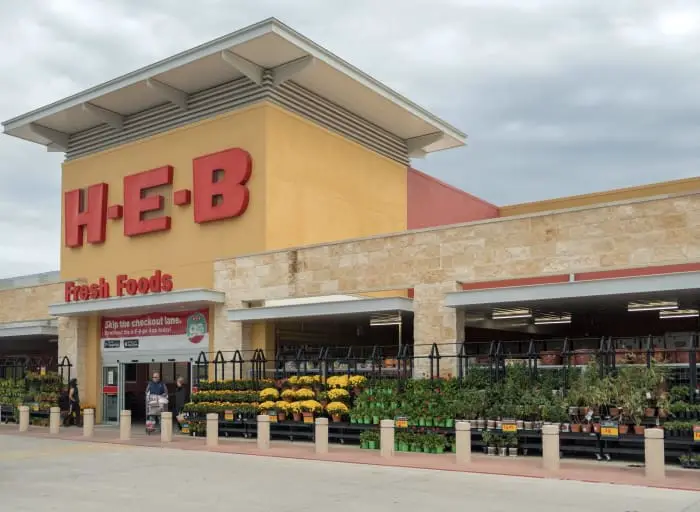Texas Senate wants to stop feeding the poor kids in Texas greasy seed oil chips and sodas filled with sodium. Texas House wants poor kids to keep feeding it into kids bodies. Why?

Table of contents
- Senate Bill 379: A Closer Look
- Why Didn’t SB 379 Pass?
- The Debate: Health Promotion vs. Personal Freedom
- SNAP in Texas: Scope and Impact
- The Bigger Picture: Beyond Texas
- Conclusion: What’s Next?
- FAQ: Texas SNAP Benefits and the Debate Over Soda and Junk Food Restrictions
- 1. What is the current status of restrictions on soda and junk food purchases with Texas SNAP benefits?
- 2. Why are people debating restrictions on SNAP purchases in Texas?
- 3. Why do some people equate Robert F. Kennedy Jr. with this issue?
- 4. What is Robert F. Kennedy Jr.’s latest stance or action on this topic?
- 5. What are the main arguments for and against SNAP restrictions?
- 6. Could Texas still restrict SNAP purchases in the future?
- 7. How would restrictions affect SNAP users in Texas?
- 8. Where can I learn more about this issue?
The Supplemental Nutrition Assistance Program (SNAP), commonly referred to as food stamps, provides essential food assistance to millions of low-income Texans.
However, a contentious debate has emerged in Texas about whether SNAP benefits should be restricted to prevent the purchase of soda and junk food.
In 2025, Texas lawmakers introduced Senate Bill 379 (SB 379), a legislative effort to ban the use of SNAP benefits for items like soda, candy, chips, and energy drinks.
Although the bill passed the Texas Senate, it failed to advance in the House, leaving the issue unresolved.
Supporters argue that such restrictions would encourage healthier eating habits, while critics contend that they limit personal choice and fail to tackle the underlying causes of poor nutrition. As of now, no restrictions have been implemented, but the conversation persists, with potential implications for future policy.
Senate Bill 379: A Closer Look
Introduced during the 89th Texas Legislative Session in 2025, Senate Bill 379 aimed to reshape how SNAP benefits are used in Texas. Sponsored by Senator Mayes Middleton (R-Galveston), the bill proposed prohibiting the purchase of certain “unhealthy” items—specifically soda, candy, chips, and energy drinks—with SNAP funds. According to Senator Middleton, the intent was to align SNAP with its mission of providing “nutritious food essential to health and well-being,” rather than funding items linked to diet-related health issues like obesity and diabetes. The bill’s text and legislative history can be found on the Texas Legislature Online.
Despite passing the Senate with a narrow majority, SB 379 faced significant hurdles in the House. Opposition from anti-hunger advocates, lawmakers, and community organizations stalled its progress, and it ultimately did not become law. As a result, Texas SNAP recipients can still use their benefits to purchase soda and junk food without restriction.
Why Didn’t SB 379 Pass?
The bill’s failure in the House underscores the challenges of implementing SNAP restrictions. Beyond philosophical disagreements, practical concerns played a role. Critics noted that enforcing a ban would require approval from the U.S. Department of Agriculture (USDA), which oversees SNAP nationally and has historically resisted similar proposals. For example, in 2019, the USDA rejected New York’s request to ban soda purchases with SNAP benefits, citing logistical difficulties and potential stigma (USDA SNAP Retailer Data).
Additionally, some House lawmakers worried about the added burden on retailers, who would need to update systems to distinguish restricted items, and on the Texas Health and Human Services Commission (HHS), which administers SNAP in the state. These concerns, combined with vocal opposition from advocacy groups, prevented SB 379 from advancing.
The Debate: Health Promotion vs. Personal Freedom
The push to restrict SNAP purchases reflects a broader tension between promoting public health and preserving individual autonomy. Supporters of SB 379, including Senator Middleton, argue that taxpayers should not subsidize unhealthy food choices that contribute to chronic diseases. They point to studies showing higher rates of obesity and diabetes among low-income populations, including SNAP recipients, suggesting that limiting junk food purchases could improve health outcomes and reduce healthcare costs. A press release from Senator Middleton’s office emphasized this stance, stating, “SNAP should support nutrition, not negate it” (Texas Senate Press Release, March 2025).
Critics, however, argue that such restrictions are overly paternalistic and fail to address the root causes of poor nutrition. Anti-hunger organizations like Feeding Texas contend that limiting SNAP choices does little to improve health if affordable, healthy food options remain inaccessible in food deserts—areas common in low-income Texas communities. They also warn that restrictions could stigmatize SNAP recipients and complicate program administration for retailers and the state. An article in Texas Monthly highlighted this perspective, quoting an advocate who said, “The real issue isn’t soda; it’s poverty and access” (Texas Monthly, April 2025).
SNAP in Texas: Scope and Impact
To grasp the stakes of this debate, consider SNAP’s scale in Texas. According to the Texas Health and Human Services Commission, over 3 million Texans received SNAP benefits in 2024, with an average monthly benefit of $250 per household. This substantial reach means that any policy change, such as restricting purchases, could affect millions of residents, from urban centers to rural communities.
The Bigger Picture: Beyond Texas
Texas is not alone in grappling with this issue. Nationally, the debate over SNAP restrictions pits public health advocates against those prioritizing flexibility for recipients. Some states have explored alternatives, like Massachusetts’ USDA-approved pilot program in 2020, which offers extra benefits for buying fruits and vegetables. However, outright bans on junk food remain rare, largely due to federal oversight and logistical challenges.
In Texas, the failure of SB 379 hasn’t ended the discussion. Lawmakers and advocates on both sides continue to refine their arguments, with some pledging to introduce similar legislation in future sessions. For updates on this evolving issue, check the Texas Legislature Online.
Conclusion: What’s Next?
The question of whether soda and junk food will be removed from Texas SNAP benefits remains unanswered. Senate Bill 379 sparked a vital conversation about nutrition, health, and equity, but its failure to pass reflects the complexity of balancing these priorities. As of now, SNAP recipients in Texas retain full discretion over their purchases, but the debate is poised to resurface. Policymakers will need to weigh the health benefits of restrictions against their impact on low-income families, retailers, and the state’s administrative capacity.
For more information on SNAP in Texas, visit the Texas Health and Human Services Commission. To track legislative developments, explore the Texas Legislature Online.
FAQ: Texas SNAP Benefits and the Debate Over Soda and Junk Food Restrictions
1. What is the current status of restrictions on soda and junk food purchases with Texas SNAP benefits?
As of April 1, 2025, there are no restrictions on using SNAP benefits to buy soda or junk food in Texas. Senate Bill 379 (SB 379), introduced in 2025, aimed to ban items like soda, candy, chips, and energy drinks from SNAP purchases but did not pass.
It cleared the Texas Senate but stalled in the House due to opposition from anti-hunger groups and concerns about enforcement. For now, SNAP recipients in Texas can still purchase these items freely.
2. Why are people debating restrictions on SNAP purchases in Texas?
The debate centers on whether SNAP should fund unhealthy foods. Supporters of restrictions, like Texas Senator Mayes Middleton, argue that taxpayer money should promote health by limiting purchases of items linked to obesity and diabetes. Opponents say this approach is overly controlling, ignores deeper issues like poverty and food access, and could shame SNAP users.
3. Why do some people equate Robert F. Kennedy Jr. with this issue?
Robert F. Kennedy Jr. has become a prominent voice in national food policy debates, leading some to associate him with efforts like Texas’s proposed SNAP restrictions. As U.S. Health and Human Services Secretary, Kennedy has pushed for reducing processed food consumption through his “Make America Healthy Again” campaign. While he didn’t directly propose SB 379, his vocal support for limiting SNAP purchases of unhealthy items—like soda—has fueled perceptions that he’s driving similar state-level efforts. Critics and supporters alike often cite his influence when discussing these policies.
4. What is Robert F. Kennedy Jr.’s latest stance or action on this topic?
In March 2025, Kennedy, in his role as HHS Secretary, publicly urged state governors to seek USDA waivers to ban soda purchases with SNAP benefits, praising West Virginia’s efforts as a model. He argued that such restrictions could combat the “public health crisis” tied to processed foods. This statement, one of his latest on the issue, aligns with his broader agenda to overhaul dietary habits and has amplified discussions in states like Texas, even though he hasn’t specifically commented on SB 379.
5. What are the main arguments for and against SNAP restrictions?
- For: Proponents say restrictions would steer SNAP users toward healthier choices, reducing chronic diseases and healthcare costs. Kennedy’s rhetoric about processed foods echoes this view.
- Against: Critics argue that bans limit freedom, don’t fix systemic problems like food deserts, and are hard to enforce. They also worry about stigmatizing low-income families.
6. Could Texas still restrict SNAP purchases in the future?
Yes, it’s possible. Although SB 379 failed, lawmakers could revive the idea in future sessions. Texas might also follow Kennedy’s advice and request a federal waiver from the USDA, which oversees SNAP. However, the USDA has traditionally been cautious about approving such changes due to logistical and equity concerns.
7. How would restrictions affect SNAP users in Texas?
If implemented, restrictions could limit options for SNAP recipients, especially in areas with few healthy food sources. Supporters say it might encourage better nutrition, while opponents warn it could make shopping harder and increase hunger if affordable alternatives aren’t available.
8. Where can I learn more about this issue?
Check the Texas Health and Human Services Commission for SNAP updates, or visit Texas Legislature Online for legislative news. For Kennedy’s broader food policy views, follow announcements from the U.S. Department of Health and Human Services.
